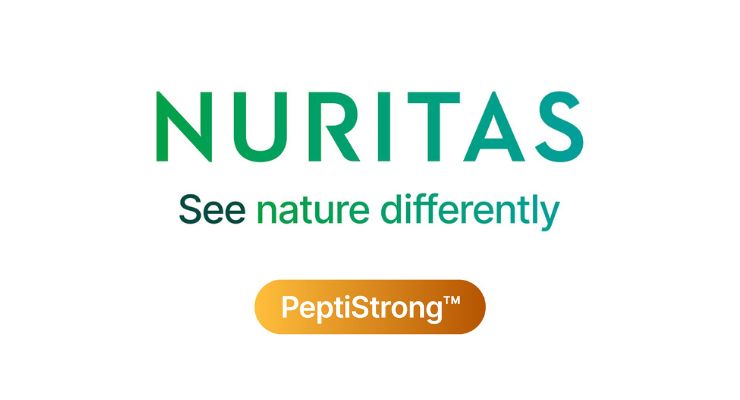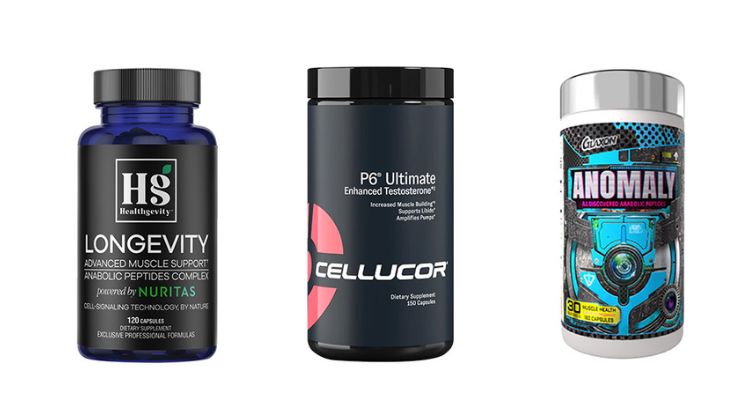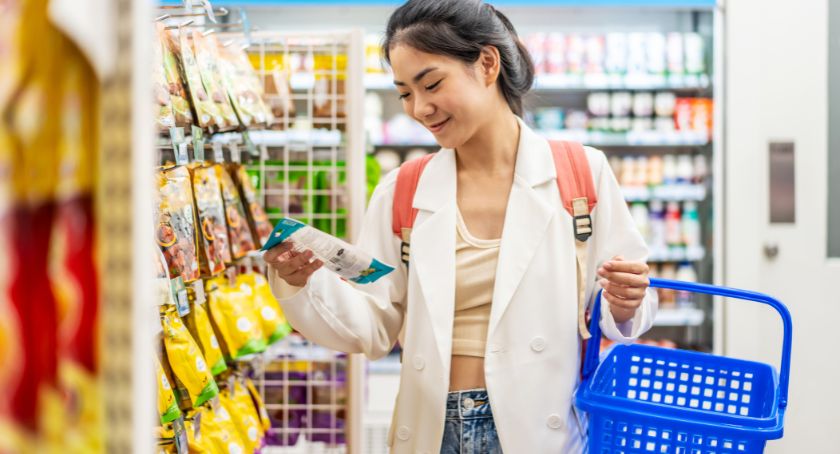Features
Nuritas: Leveraging Artificial Intelligence to Speak the Language of Life
The biotech company is reimagining the ingredient discovery process.

By: Sean Moloughney

By now you’ve likely been introduced to artificial intelligence (AI) in one way or another. Maybe you’ve experimented with chatGPT, the large language model developed by OpenAI that Microsoft is attempting to enmesh within its search engine, Bing.
Companies in the nutraceuticals industry are also leveraging the power of AI to discover, develop, and scale bioactive ingredients for dietary supplements, including the Dublin-based biotechnology company Nuritas.
Founded in 2014 by Dr. Nora Khaldi, a mathematician with a PhD in molecular evolution and bioinformatics, the company’s early investors included U2’s Bono and The Edge, Marc Benioff, and Ali Partovi.
Nuritas established a U.S. office in the past year following a $45 million Series B funding round led by Chicago-based Cleveland Avenue, LLC in late 2021.
A New Approach to Innovation
“Artificial intelligence has the potential to greatly impact and improve the field of healthcare and human health span overall,” said Marie Bruckert, head of global marketing and communication. “At Nuritas we utilize AI in ingredient discovery.”Nuritas has built “the world’s largest peptide knowledge base” using its proprietary AI and genomics platform, which it calls The Magnifier Nπϕ (Nuritas Peptide Finder).
The process rapidly analyzes billions of hidden peptides in plants and natural food sources to predict and identify how they impact specific health areas, molecular pathways, or receptors. The platform has been shown to identify and develop new bioactives 10 times faster and with greater accuracy than traditional discovery methods, according to the company.
Nuritas’ AI platform effectively turns the innovation process on its head, said Bruckert.
“We speed up the discovery process by analyzing vast amounts of data to identify potential new peptide-based solutions. The ability of AI to quickly analyze data, model complex systems, and optimize designs can help accelerate R&D and speed up the time to market for new products and treatments.”
This new, targeted approach “allows us to interrogate our food sources differently,” she added, “creating plant-based, scientifically-validated, effective ingredients in record time and cost-effectively. Using an AI-led approach, we are beginning to optimize our foods to create healthy and sustainable solutions to improve health—showcasing exactly how technology can not only aid advancements in preventative healthcare, but also help the industry to meet the demands of a modern customer base who are seeking a more specialized product.”

Peptide Power
Focused specifically on peptides, short strings of amino acids, Nuritas noted that “for millions of years, peptides have existed and evolved in nature, however, we lacked the technology to uncover, understand, and clinically prove their beneficial effects—until now.”The company’s current portfolio of cell-signaling peptide ingredients includes PeptiStrong for muscle health, derived from hydrolyzed fava bean protein; PeptiForce, derived from peas, for the management of glucose metabolism; and PeptiYouth, a skin health ingredient for cosmetic applications.
In an article published last year in Healthcare Business Today, Audrey Wall, scientific lead at Nuritas, called peptides “the language and currency of life,” as well as “the next health frontier.”
Expanding on this idea, Bruckert said, “For decades, a product-centric focus on costs, taste, and texture have left us blind-sided to the long-term impacts of the ingredients these products contain. Apart from cooler names and nicer packaging, most products we buy still have ingredients that seem to do more harm than good for both us and the planet.”
“Nuritas peptides,” she continued, “offer solutions to these problems in a safe, efficient, sustainable way. The intelligent ingredients work in harmony with the body and boost precise natural pathways, thanks to their cell signaling power. We like to say that they deliver a message to signal the body to act. They are a language, the language of life.”

Going to Market
In 2018, Nuritas announced the commercial launch of what it said was the world’s first bioactive ingredient discovered and delivered through AI. PeptAIde, brought to market by BASF for cosmetic applications, contains a patented network of anti-inflammatory bioactive peptides unlocked from rice protein.Nuritas has also partnered with leading food and pharma companies including Nestlé, Mars, Sumitomo Corporation, and Pharmavite.
Three new dietary supplements have launched recently in the U.S. featuring Nuritas’ muscle health ingredient PeptiStrong. Miami-based supplement brand Healthgevity has debuted its Longevity product featuring PeptiStrong to increase muscle protein synthesis, improve muscle recovery, and reduce muscle loss. The product also combines branded ingredients from NuLiv Science: Senactiv, Rosa roxburghii (fruit) and Panax notoginseng (root); and AstraGin, Astragalus membranaceus (root) and Panax notoginseng (root).
Nutrabolt’s Cellucor brand has launched its new P6 Ultimate Testosterone Booster supplement with PeptiStrong for increased muscle building, along with a lineup of other ingredients.
Glaxon’s new Anomaly supplement is the third new product containing PeptiStrong to debut recently.
Strong Science
PeptiStrong has been validated in two human clinical trials, Bruckert said. The first clinical trial, published in the Journal of Nutrition this year, was carried out by Professor Luc Van Loon at Maastricht University. This immobilization trial investigated the effects of PeptiStrong compared to a milk protein ingredient.Following immobilization, PeptiStrong performed similarly to milk in terms of recovery and preventing muscle mass loss. “However, we found that PeptiStrong outperformed milk protein and significantly increased muscle protein synthesis, indicating a unique opportunity for a plant-based ingredient for muscle health following injury or immobilization,” Bruckert said.
A second clinical trial out of Maastricht University investigated the effects of a low dose of PeptiStrong on muscle strength recovery following exercise-induced muscle damage.
“In this double-blind, placebo-controlled trial, we found that PeptiStrong significantly improved strength recovery following muscle damage,” Bruckert said. “It also significantly reduced the amount of muscle fatigue as well as a concomitant significant reduction of myostatin expression, indicating the potential for PeptiStrong to reduce severity of exercise-induced muscle damage and improve recovery, hence allowing a faster return to training.”
According to the company, part of what makes PeptiStrong unique is that it’s a plant-based alternative for muscle health benefits, and importantly, it has been characterized in terms of its active component.
“PeptiStrong was characterized through AI; key bioactive peptides within PeptiStrong have been synthesized and validated for muscle-health-related bioactivity, such as phosphorylated S6 and anti-inflammation,” said Bruckert. “Because we know the unique peptide fingerprint of Peptistrong, we can confirm the reproducibility of the ingredient through peptidomic analysis, giving us a robust, reproducible, characterized, and validated ingredient for consumers.”
Nuritas’ ingredients are derived from well-known food sources using mild processing steps, are safe, and would not be considered novel food, according to the company. “However, we will follow the countries’ legal requirements to enter markets where we are interested. One of the launched ingredients has received self-affirmed GRAS status in the U.S. and has also been registered by Health Canada (PeptiStrong); another has cleared FDA review and received GRAS status (PeptAIde). We are in the process of obtaining similar regulatory clearance for our other ingredients in various regions.”
In addition to disrupting the innovation process, AI has the potential to improve health and healthcare in many ways, including reducing costs by streamlining processes and creating other efficiencies, said Bruckert.
“Overall, the possibilities of AI are vast and have the potential to greatly improve longevity and wellbeing of everyone.”




















